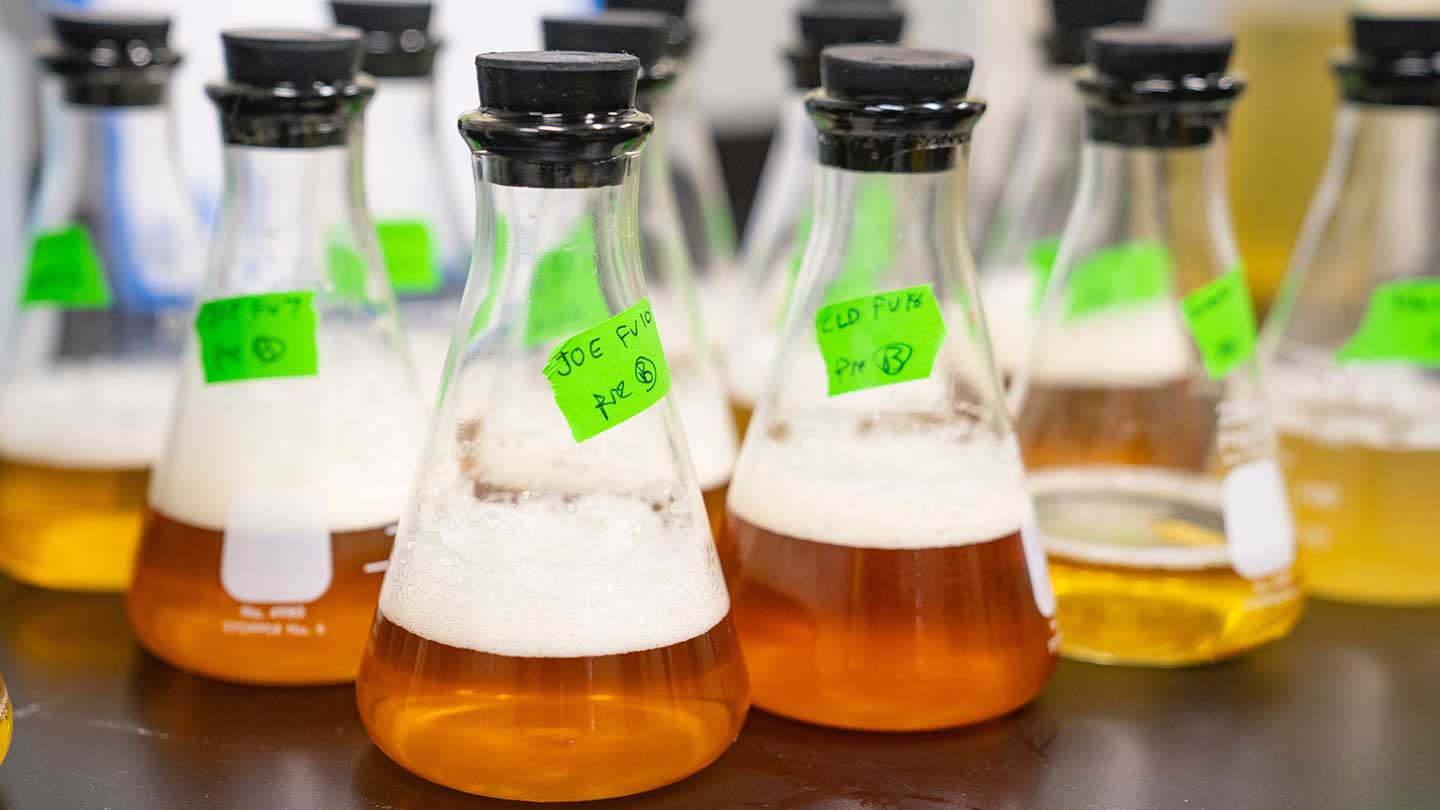
Aerosols: Formation and Impacts

Contact: DR. SHANHU LEE
Aerosols are solid or liquid particles that suspend in the air. Atmospheric aerosols impact air quality, human health, and global climate. Nucleation is the gas-to-particle conversion process in which gas-phase species directly form solid or liquid particles via chemical reactions. Nucleation is the first step in the chain reactions that lead to cloud formation and, therefore, plays key roles in climate change.
In our group, we use state-of-the-art mass spectrometers and particle instruments to conduction nucleation kinetics studies. Our goal is to understand the chemical processes involved in aerosol nucleation and growth processes at the molecular and cluster level.
Rags to Riches: Biofuels From Waste

Contact: DR. CARMEN SCHOLZ
Biodiesel is a “green” fuel source. Yet, for every ton of biodiesel produced there are also 100 kg of glycerol produced, which is currently considered waste. The bacterium Chlostridium pasteurianum is capable of converting this waste product into bio‐butanol, a fuel additive much more efficient than the currently used ethanol.
